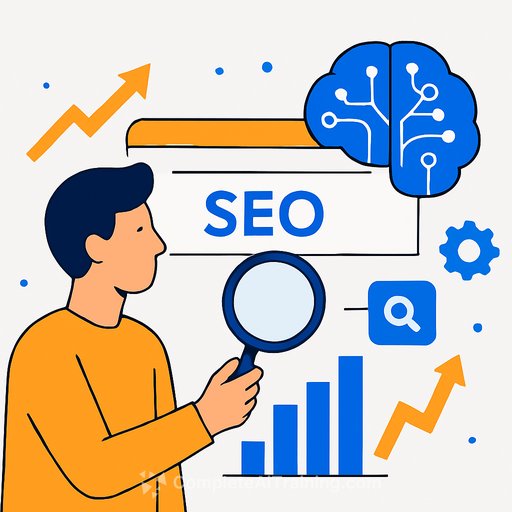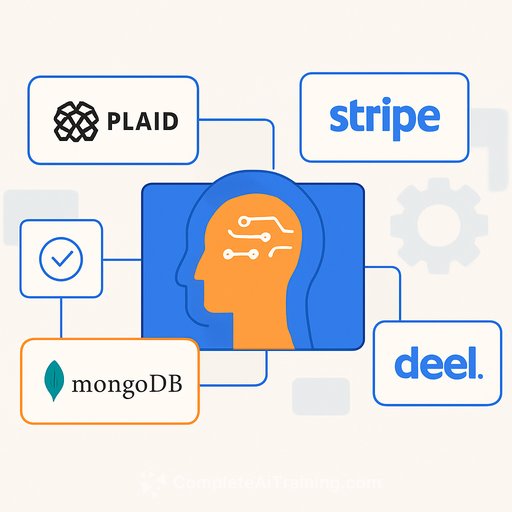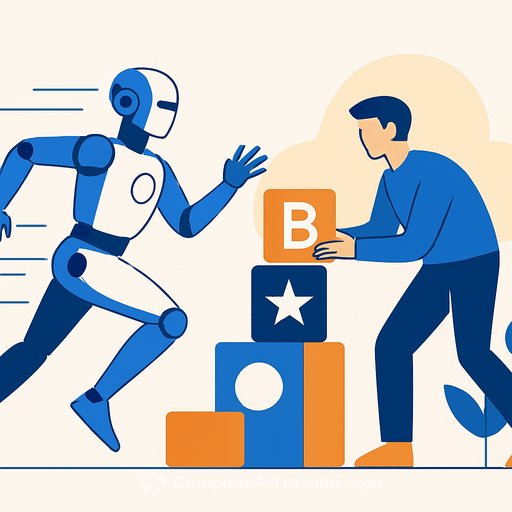How to Optimize Your Website for AI-Powered Search
AI-driven search is changing how people find information online. It’s already cutting into traditional organic traffic, which means your website strategy needs to adapt. This article shows you practical steps to keep your site visible, trusted, and converting in this new search environment.
Introduction
Search behavior is shifting fast. AI tools like ChatGPT are providing direct answers, reducing clicks to websites. Redesigning a site today means more than good user experience and SEO—it means optimizing for large language models (LLMs). AI-generated answers and zero-click searches are already reducing organic traffic, so your digital strategy must reflect this reality.
To stay competitive, you need to understand how AI changes search and what to do about it. Let’s explore the impact of AI-powered search and actionable tactics to keep your website effective.
How AI Is Changing the Landscape of Search
AI is transforming search by providing instant answers and reducing the need to visit websites. Organic traffic is projected to drop by over 50% by 2028. Currently, nearly 60% of Google searches in the U.S. end without a click because users get answers directly on the results page.
Google’s AI summaries appear in about a third of searches, speeding up access to information but cutting traffic to individual sites. With over 800 million weekly users of generative AI like ChatGPT, many complete their research inside these platforms instead of traditional search funnels.
On the bright side, visitors arriving from AI-powered search are 4.4 times more likely to convert. This means adapting your website to AI search is not just about survival—it’s about seizing new opportunities.
By 2027, over 90 million U.S. adults will use generative AI as their main search tool, up from 13 million in 2023. ChatGPT-related domains saw 6 billion global visits in May 2023, with steady growth expected.
The takeaway: search visibility now depends on being trusted and cited by AI platforms, not just ranking high on traditional search engine results pages (SERPs).
Traditional SEO vs. LLM Optimization
Traditional SEO focuses on ranking higher on search engines through keywords, backlinks, and site performance. LLM optimization centers on being cited in AI-generated answers and conversational queries.
- Primary goal: Traditional SEO aims to improve SERP rankings; LLM optimization aims to get referenced in AI responses.
- Keyword strategy: Traditional SEO uses exact-match, high-volume keywords; LLM optimization targets topic clusters and natural language.
- Content structure: Traditional SEO favors scannable, keyword-focused content; LLM optimization requires comprehensive, context-rich, conversational content.
- Authority signals: Traditional SEO values backlinks and E-E-A-T (experience, expertise, authoritativeness, trustworthiness); LLM optimization emphasizes brand recognition and topic coverage.
- User experience: Traditional SEO measures bounce rate and engagement; LLM optimization focuses on information quality and user satisfaction.
- Automation: Traditional SEO is mostly manual; LLM optimization leverages AI tools heavily.
- Measurement tools: Traditional SEO uses analytics and rank trackers; LLM optimization tracks LLM visibility and brand mentions.
Combining traditional SEO with LLM optimization gives your website the best chance to perform well in both conventional and AI-powered search.
5 Effective Strategies to Optimize Your Website for AI and LLMs
1. Focus on Structured and Relevant Content
Clear, well-organized content helps both AI and users understand your pages.
- Use FAQ Schema: Implement structured FAQ schema to answer common questions and improve AI readability.
- Organize Content Clearly: Use headings, subheadings, and bullet points to make your content easy to scan.
- Cover Topics in Depth: Address user intent fully with comprehensive content that includes strategies, challenges, and examples.
2. Strengthen Your Technical SEO
A solid technical foundation ensures AI and search engines can crawl and index your site effectively.
- Improve Crawlability: Keep your robots.txt clean, submit updated XML sitemaps, and ensure important pages are accessible.
- Enhance Website Performance: Optimize image sizes, enable caching, and ensure your site loads quickly on mobile devices.
- Fix Broken Links: Audit your site regularly for broken or outdated links and use 301 redirects to preserve link equity.
3. Emphasize Semantic Search Optimization
AI prioritizes user intent and context over exact keywords.
- Focus on Topic Clusters: Group related content under broad themes and connect subtopics with internal links.
- Implement Structured Data: Use schema markup for reviews, authorship, and how-to guides to highlight key information.
- Write for Natural Language: Optimize for conversational queries and include synonyms naturally within your content.
4. Keep Content Fresh and Accurate
Regular updates build trust with AI systems and users.
- Refresh Older Content: Update outdated pages with current data, trends, and examples.
- Monitor Trends: Use tools like Google Trends to spot emerging questions early and address them.
- Archive Irrelevant Content: Remove or update outdated or inaccurate information to maintain credibility.
5. Build Brand Authority
Being recognized as a trustworthy source increases chances of AI citations.
- Acquire Quality Backlinks: Partner with reputable sites and publish original research to attract valuable links.
- Highlight Expertise: Showcase credentials in author bios and follow E-E-A-T principles to boost trust.
- Monitor AI Mentions: Track how your brand appears in AI-generated content and correct any inaccuracies quickly.
Conclusion
Traditional SEO is no longer enough. To stay competitive, focus on creating structured, authoritative content that aligns with how AI-powered search works. This means thinking beyond rankings and clicks—earning trust and being a reliable source where people get their answers.
Brands that adapt will thrive as AI changes how information is discovered online. Smaller, agile brands have a chance to compete with bigger players by focusing on quality, relevance, and authority.
For marketers wanting to deepen their understanding of AI in digital strategy, explore courses at Complete AI Training to stay ahead of these shifts.
Your membership also unlocks:






